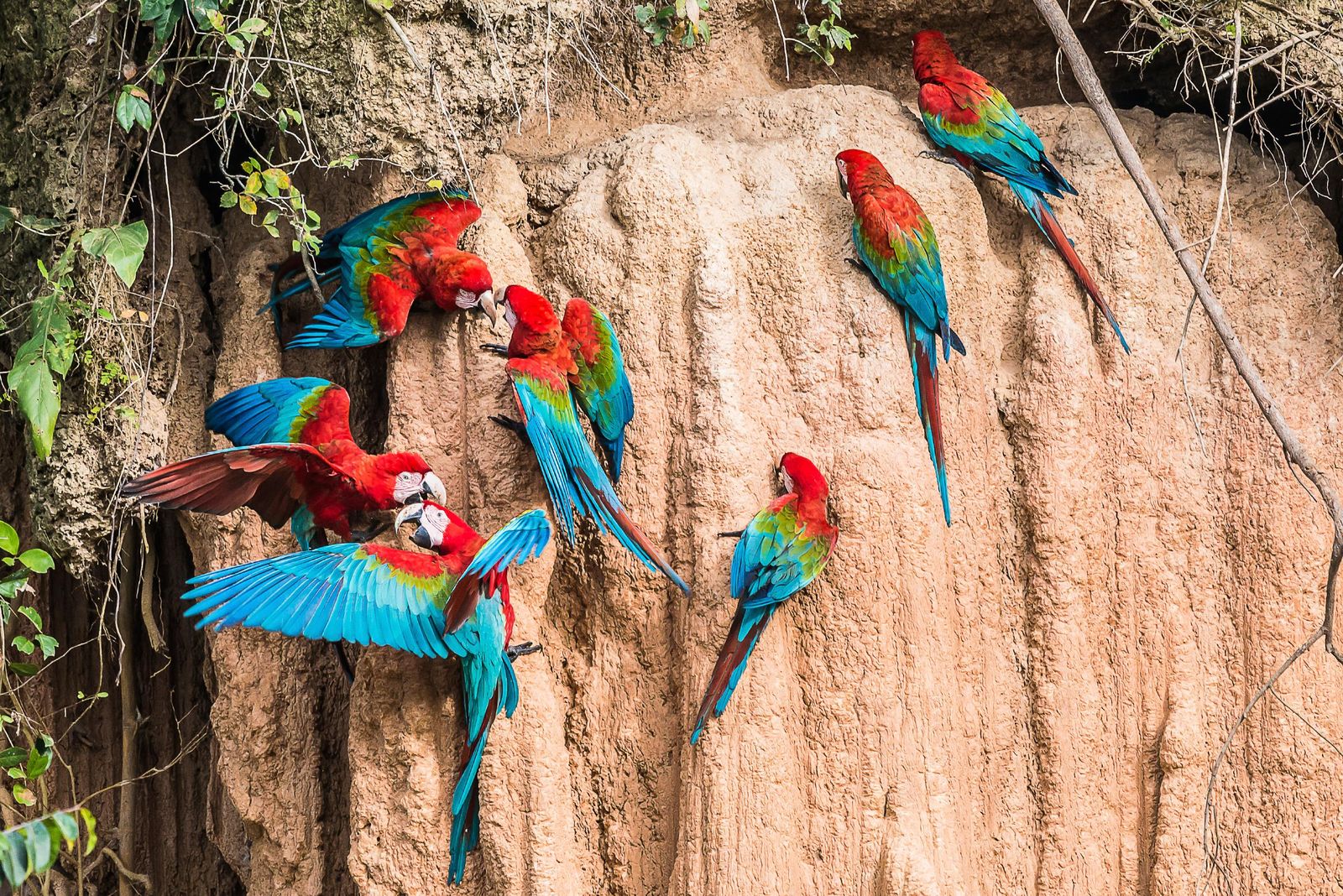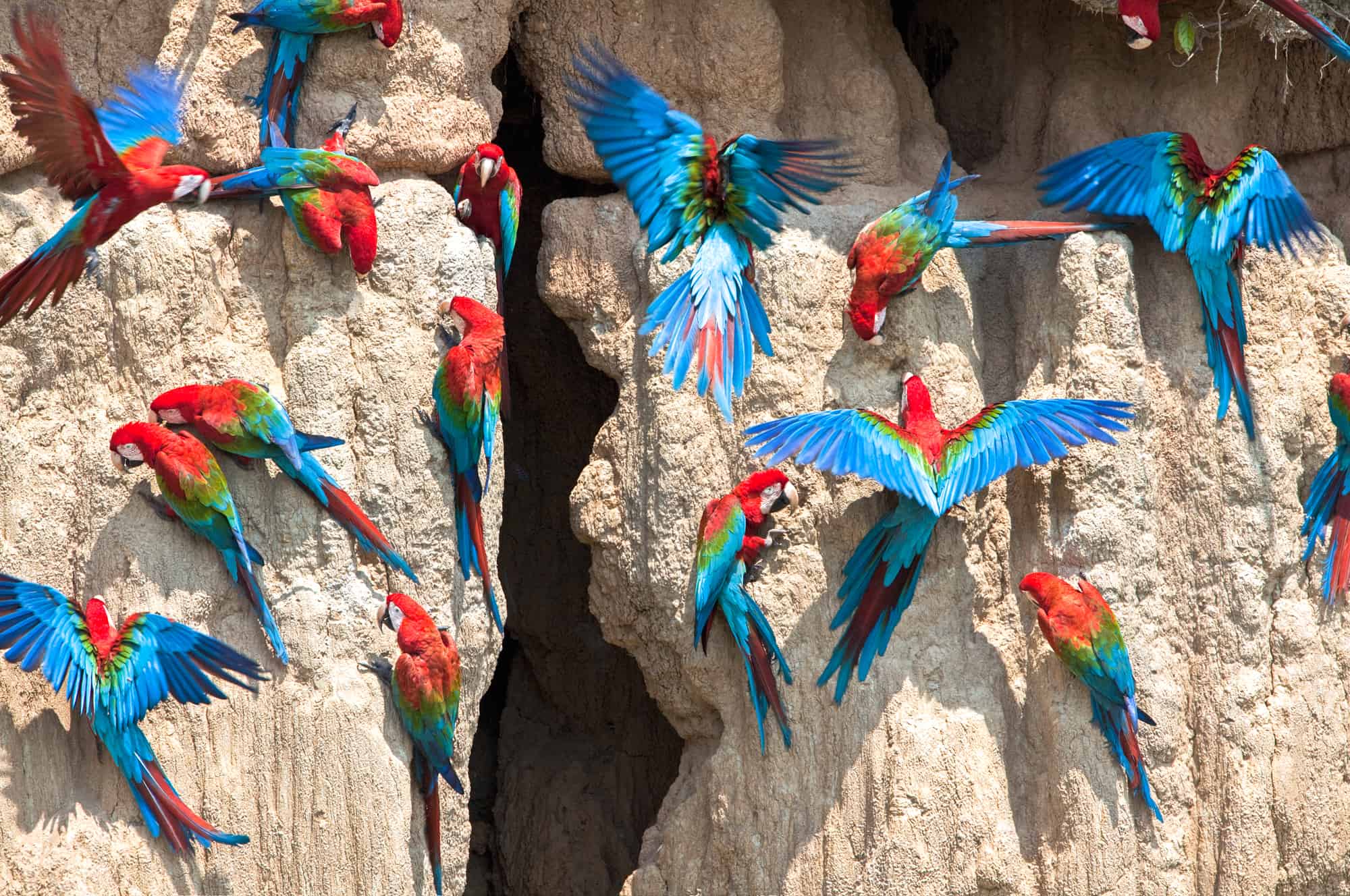Macaws eat clay to detoxify their bodies and supplement their mineral intake. This behaviour is known as geophagy and is common among many bird species.
Geophagy, the consumption of soil or clay, has been observed in many species of animals, including birds. However, the reasons for this behaviour can vary. In the case of macaws, studies suggest that they consume clay to detoxify harmful substances they ingest from their diet, such as plant toxins and heavy metals.
Additionally, the clay provides important minerals like sodium and calcium that may be lacking in their diet.
This behaviour is not unique to macaws and has also been observed in other parrot species. Scientists continue to study animals’ geophagy to understand better why it occurs and its potential health benefits.

Credit: www.smithsonianmag.com
What Is Geophagy?
Geophagy refers to the act of consuming earth materials. Macaws, in particular, are known to eat clay. The definition of geophagy includes not just the earth but also rocks and soil. Many animals, including primates, birds, and some insects, practice geophagy, often for medicinal purposes.
For example, some animals may consume charcoal to neutralize toxins in their stomachs. Others may ingest dirt to get minerals or salts unavailable in their regular diets. Interestingly, humans also have a history of geophagy, with some cultures using earth materials for medicinal purposes.
While this may seem unusual, there are many reasons animals and humans alike resort to consuming Earth in various forms and for different reasons.
The Macaw’S Diet
Macaws are beautiful birds that belong to the parrot family. They primarily feed on fresh fruits, vegetables, nuts, seeds, and protein sources. However, what’s interesting about their diet is that some species also eat clay.
This behaviour, called geophagy, is an essential part of their diet. They do it for two main reasons: to obtain minerals and nutrients absent in their primary food sources and possibly to detoxify from ingesting poisonous seeds and fruits.
Macaws also obtain calcium from their diet, which is crucial for bone health, ensuring their strong beak and feather production. Therefore, a balanced and diverse diet is crucial for the macaw’s overall health and well-being.
Why Are These Macaw Birds Eating Clay?
The Benefits Of Clay Consumption For Macaws
Macaws are known for their unique habit of eating clay. This peculiar behaviour has garnered widespread attention and raised questions about its rationale. The fact is that consuming clay provides numerous benefits for macaws. Firstly, clay contains essential minerals and nutrients missing from their regular diet.
Secondly, it is a detoxifying agent, flushing out harmful toxins and impurities from the digestive system. Additionally, macaws use clay to neutralize the acidity in their stomachs, allowing them to digest their food more efficiently. Incorporating clay into their diets helps macaws maintain a healthy digestive system and improves overall well-being.
The Science Behind Clay Consumption In Macaws
Macaws are known for eating clay, but why do they do it? Through scientific research, it’s been discovered that macaws consume clay for several reasons. Firstly, the clay helps neutralize toxins and provides minerals necessary for their bodies. Additionally, it relieves gastrointestinal distress caused by the toxic seeds they eat.
It can even act as a method of self-medication to combat diseases. This behaviour has implications for conservation efforts because it shows how vital access to clay is for macaw survival. Deforestation and habitat loss could impact the availability of suitable clay sites, making it harder for macaws to obtain this crucial resource.
Understanding their clay consumption is vital to the well-being of these magnificent birds.
Conclusion
It’s no secret that macaws have unique dietary behaviour, including eating clay. Scientists and researchers have been trying to understand the reason behind this strange habit for years, and now we have some answers. Macaws eat clay to neutralize the toxins in the fruits and seeds they consume and improve their digestive efficiency.
Clay acts as a natural detoxifier, binding to harmful chemicals in the diet and eliminating them from the body. It also provides essential minerals that are often lacking in their diet. Therefore, it’s safe to say that this seemingly odd habit is a survival strategy for these tropical birds.
As more research is conducted, we may uncover more benefits of clay consumption for macaws. When you see a macaw munching on some clay, you’ll know that it’s just part of their natural behaviour adapting to their environment.




